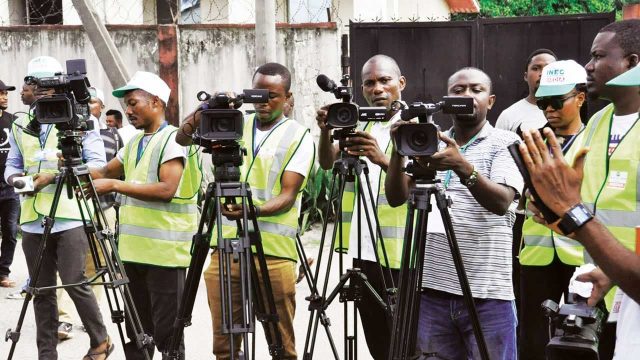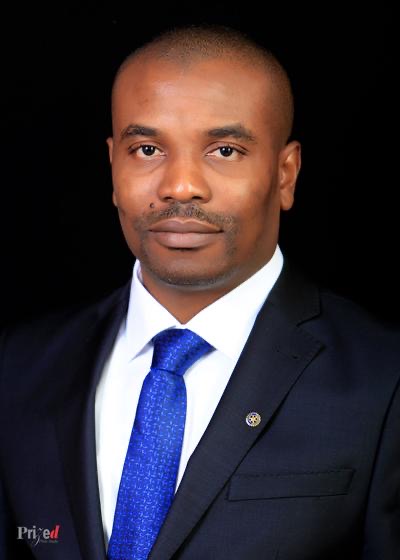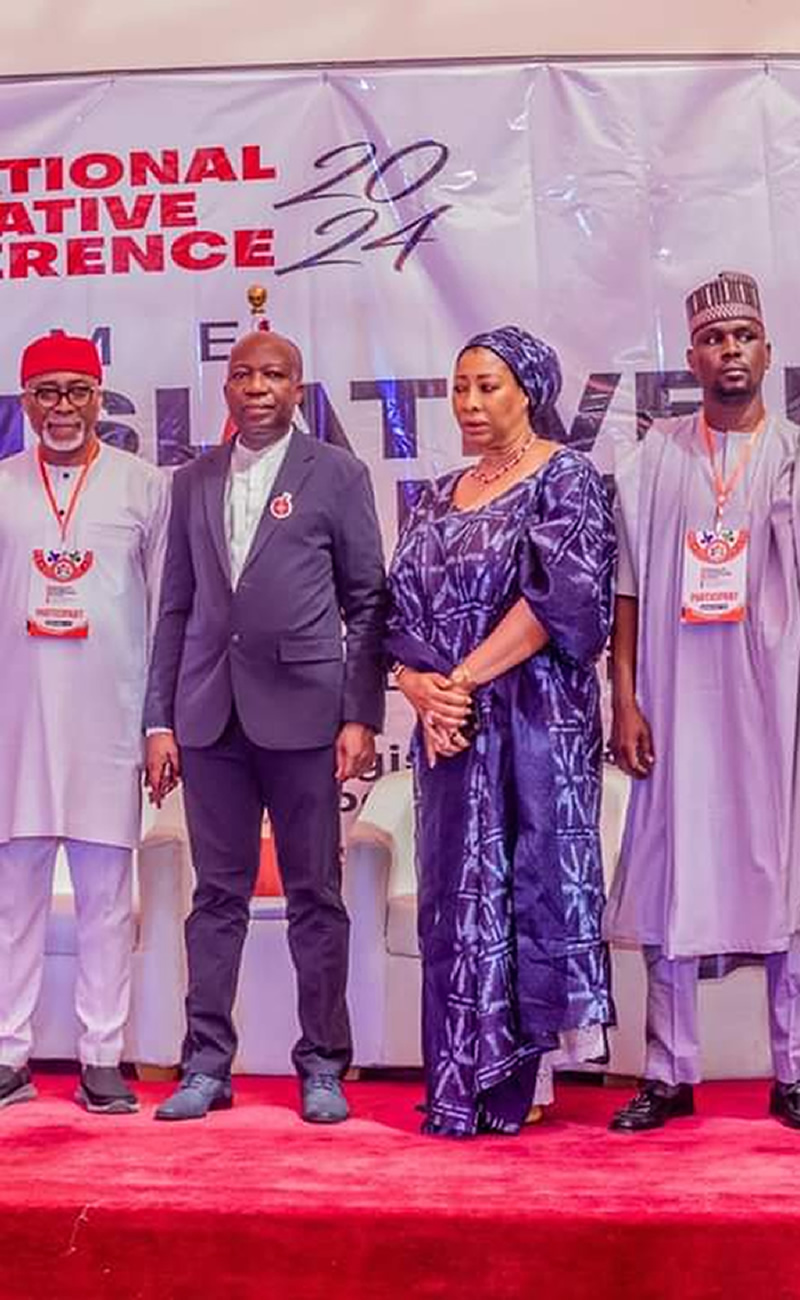The Legislative Agenda of the 10th National Assembly aims to rebuild citizens’ confidence and deliver good governance for improved democracy in Nigeria which includes press freedom.

The 10th House of Representatives was inaugurated on June 13, 2023 following the general elections on February 25, 2023. The election outcome produced a House with two hundred and seventy-six (77%) new and 84 (24%) returning members, continuing the traditionally high turnover rate in the legislature.
The 10th Assembly will operate within the context of serious economic, political and social challenges in Nigeria. Citizens’ confidence in government is currently low, and a crisis of legitimacy is affecting the effectiveness of government institutions, including the legislature.
Given the above and the vast expectations citizens have of the government, the House of Representatives said it would be committed to developing and implementing a Legislative Agenda to rebuild citizens’ confidence and deliver good governance for improved democracy in Nigeria.
This article seeks to use the Legislative agenda of the House as a litmus test going by events in the National Assembly, especially at the Senate.
For instance, AGENDA 6: INCLUSION AND OPEN PARLIAMENT
9.5. Media
The House of Representatives said it recognises that the media plays an integral role in the functioning of legislative work, serving as a bridge between legislators and the public.
Accordingly, the House said it will engage with the media to promote the preservation of freedom of expression and the press in reporting news and expressing opinions on national development issues.
1. Review of laws and practices that restrict press freedom and the ability of the media to carry out its constitutional role.
2. Enhance good governance practices, transparency and accountability through media chats, public hearings, town hall meetings, etc.
3. Undertake a revalidation and the accreditation of journalists to cover legislative proceedings, ensuring they can access sessions, committee meetings, and lawmakers.
4. Strengthen and improve House official digital platforms and apps where legislative data are available in real-time.
In contrast, OrderPaper observed that the Senate, led by Godswill Akpabio, recently issued an order barring over Ten TV station photojournalists from covering plenary proceedings without any confiscated evidence or reason for the affected media houses.
Nigerians certainly wonder how covering legislative proceedings, which can ensure media organisations access sessions, committee meetings, and enable the Fourth Estate perform their constitutional role will be achieved with this “Revalidation Restriction” without a specific reason from the Senate!
Before the ink dries on the paperwork, a conversation about “open parliament” and “inclusion” is essential to contemporary democracies aiming to strengthen and establish government through more responsible, transparent, and participatory mechanisms that support democracy as a whole.
The 10th House also proposed, under Agenda 6, critical areas that perhaps, the Senate might be interested in.
9.1. Women’s Political Representation and Participation
The 10th House of Representatives plans to increase women’s political representation and participation in Nigeria.
A report in 2023 stated that women elected and appointed to political positions made up only 6.7 per cent of all political leadership positions in Nigeria. According to the report, this is much less than the global average of 22.5 per cent, the regional average for Africa of 23.4 per cent and the West African average of 15 per cent. This shows that Nigeria has not attained 30 per cent affirmative action as prescribed by the Beijing Platform of Action. At least, the House is decisive on this matter and open to a change. In the same vein, only 43 of 763 senators elected since 1999 are female. Something has to be done and the Senate should also be committed to it.
9.2. Youths and Sports Development
Nigeria’s young population, particularly those under 30, requires prioritisation in youth development. The 10th House of Representatives says it will focus on legislative measures to promote youth and sports development. These include increasing institutional and financial support for the Young Parliamentarians Forum, supporting empowerment programs, increasing education budgets, driving legislation for STEM education, incentivising private sector companies to employ and train youth, supporting public work programs targeting young people, ensuring youth representation in decision-making bodies, and supporting development programs for young farmers. The plan also includes developing a National Assembly Youth Engagement Strategy, promoting and supporting grassroots sports development.
9.3. Open Parliament and Citizens Engagement
The 10th House of Representatives aims to promote transparency and accountability in governance by creating a centralised digital portal for all legislative documents, strengthening NASS TV, providing regular broadcast slots, and launching a dedicated website. The House will also strengthen public participation in legislation, establish dedicated channels for feedback, and make government datasets available in open formats. The initiative will also encourage committees to hold outreach programs with civil society and citizens, establish partnerships with NGOs and civil society organisations, and mandate the publication of sessional/annual reports. The House will also promote programs targeting the youth demographic, strengthen the civil society liaison office, and review the Companies and Allied Matters Act to remove barriers to CSOs’ mandate.
9.4. Inclusion of Internally Displaced Persons (IDPs) and Persons Living with Disabilities (PLWDs) in National Planning
The House will adopt legislative measures to uphold the rights, dignity, and welfare of Internally Displaced Persons (IDPs) and Persons Living with Disabilities (PWDs). These measures include creating laws allowing IDPs to participate in decision-making processes, creating a framework for safe and voluntary return, overseeing the Disability (Prohibition) Act, encouraging committees to review existing laws, enforcing the Discrimination Against Persons with Disabilities Act 2018, and promoting PLWD representation in decision-making bodies.
In conclusion
Agenda 6 of the 10th House’s legislative agenda underscores the importance of inclusion and an open parliament in fostering a vibrant and equitable democracy in Nigeria. The National Assembly must take meaningful steps toward creating a more inclusive and accountable governance framework by embracing transparency, public participation, and diversity. It begins with collaborating with committed partners and non-government organisations in their respective thematic areas. What do regulations mean for civil society organisations.
The 10th National Assembly needs to continue its work. The success of its legislative agenda will depend on its sustained commitment to an open parliament and the meaningful inclusion of all citizens in the legislative process. The National Assembly can contribute to Nigeria’s progress toward a more just and prosperous future by prioritising these principles. By doing so, we can ensure that people’s basic needs are met, that they have the opportunity to rebuild their lives, and that they contribute positively to society.



